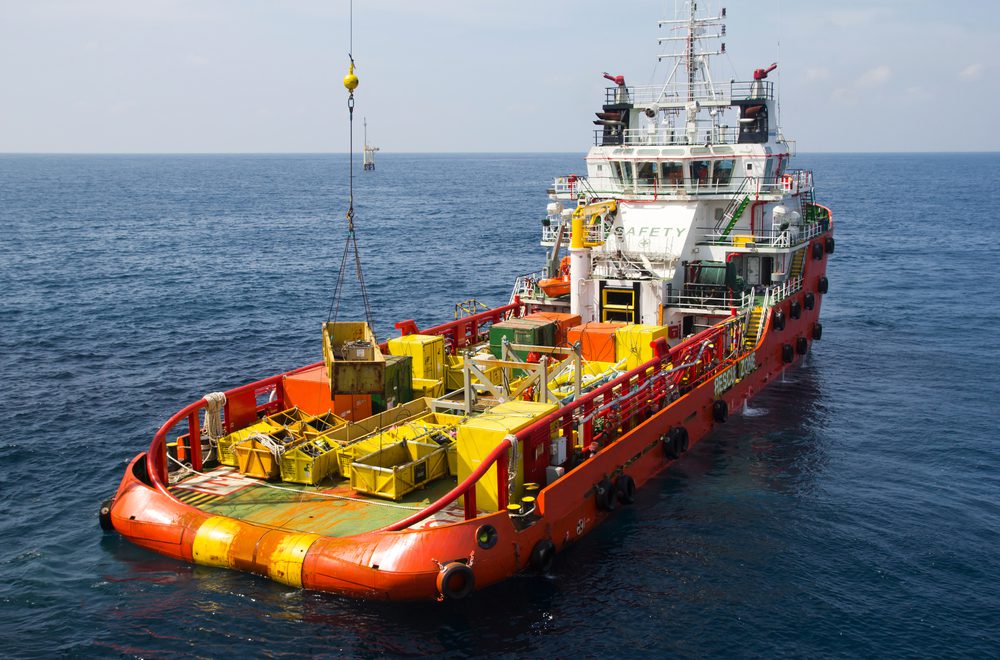Israeli Forces Seize Gaza Aid Boat Carrying Greta Thunberg
Israeli naval forces boarded and seized a charity vessel carrying Swedish activist Greta Thunberg, which had tried to break the naval blockade of the Gaza Strip on Monday.

A new independent report due for publication later this month aims to challenge the realities of the safety of workboat and offshore support vessel operations, a sector of the international maritime industry that appears to be unique.
The report, titled The Impact of Crew Engagement and Organizational Culture in the Workboats and OSV Sectors, looks to test regulator assumptions on safety drawn from the wider maritime industry against realities that are specific to the workboat sector.
Despite the inherently risky nature of their work, many workboats are not bound by SOLAS or the International Safety Management (ISM) Code.
A preview of the report shows some startling findings, suggesting that 50% of crews working on OSVs say that safety standards have been compromised because it is difficult to say ‘no’ to clients or senior management. In addition, nearly 80% appear to accept that commercial pressures could influence safe working practices. The report also draws on Port State Control (PSC) data to note that 27% of OSV deficiencies relate to certification and documentation shortcomings.
“In an ideal world, regulators could take on a greater role in sharing best practices across the industries they regulate, because they see the best and the worst,” says Ron deBruyn, CEO and founder of the ship management software firm Helm Operations, which commissioned the report. “If their job is to ensure safer operations of the vessels they regulate, then why can’t they share what some companies are doing well?”
Detention rates amongst commercial vessels from the Paris MOU and Tokyo MOU actually show OSVs and tugs performing well when compared to cargo ships, says deBruyne. “So they’re already doing a very good job ensuring that they’re operating safely – relative to the industry.”
But safety “doesn’t actually have a finishing line”, he adds. To operate safely should not be thought of in terms of a dollar figure, because an incident can be very costly for an organization based on injuries and damage of reputation.
“The report seems to show that safety statistics are so highly valued by operators now that there may be pressure not to report an incident. If incidents aren’t being reported then the safety statistics cannot be realistic, and it is possible that safety is not as good in reality as the statistics would suggest,” deBruyne says.
While most companies do a good job of promoting safety in their organizations, deBruyne believes many crew members feel that they cannot be forthcoming in identifying an issue for fear of reprisals, which generally take the form of loss of work for them personally. “Lack of empowerment is still something our industry needs to come to grips with,” he says.
This view is supported by the report’s finding that, even though 84% of respondents felt backed up by management when reporting a safety issue, almost half acknowledged that safety standards have been compromised due to the difficulty to say ‘no’ to clients or senior management.
“There’s disconnect there,” deBruyne says. “The same disconnect appears in the fact that nearly 100% of respondents felt they had undergone adequate training to do their job safely, but 34% said their company needed to offer additional training specific to operational duties and certain technical items of equipment.”
The Impact of Crew Engagement and Organizational Culture on Maritime Safety in the Workboats and OSV Sectors will be available on September 24th to coincide with World Maritime Day.

Sign up for gCaptain’s newsletter and never miss an update

Subscribe to gCaptain Daily and stay informed with the latest global maritime and offshore news


Stay informed with the latest maritime and offshore news, delivered daily straight to your inbox
Essential news coupled with the finest maritime content sourced from across the globe.
Sign Up